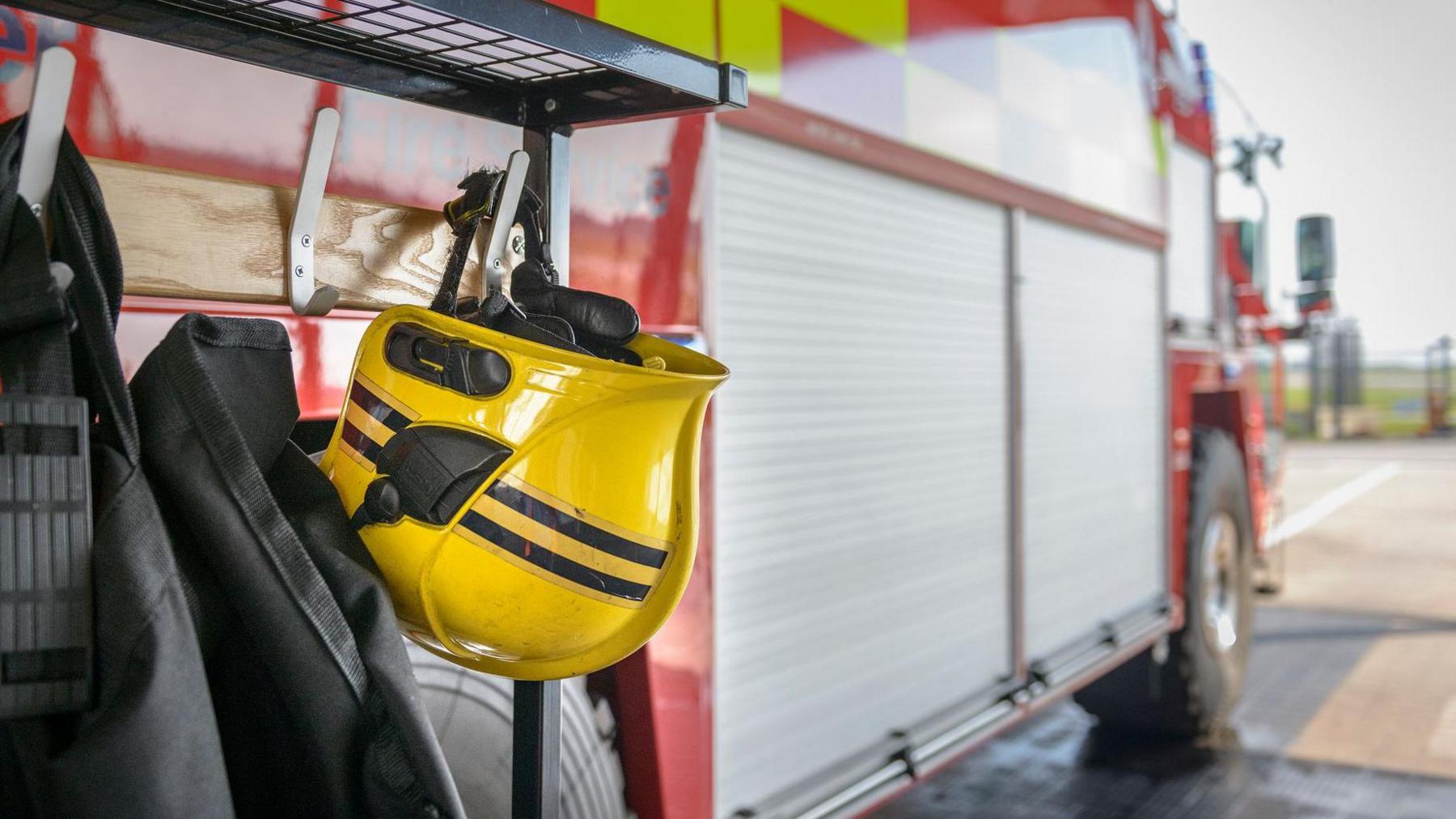Fire services change how they respond to alarms

The services said over 97% of AFA calls they attended were false alarms
- Published
Fire services in Sussex have changed how they respond to automatic fire alarm (AFA) activations.
East Sussex Fire and Rescue Service (ESFRS) and West Sussex Fire Service (WSFRS) will no longer automatically respond to fire alarms in low-risk commercial premises, unless a fire has been confirmed at the property.
Low-risk commercial premises are those with no sleeping risk such as offices, shops and schools.
The services said about 97% of AFA calls they attended were false alarms.
'Significant disruption'
ESFRS explained false alarms from AFAs could prevent crews from attending real emergencies with lives at risk.
They also caused "significant disruption" to the service's training, fire safety and community safety work.
The change does not apply to residential buildings like hotels, hospitals and domestic dwellings.
The service urged those responsible for fire protection measures in a building to review their fire risk assessment, emergency plan and to let staff know about the changes.
WSFRS added: "We are not asking anyone to put themselves at any unnecessary risk."
The service explained under the Regulatory Reform (Fire Safety) Order 2005 relevant staff should be trained and incorporate a suitable procedure to be able to investigate the cause of the AFA and confirm if there is a fire or not.
Both services said if you discover a fire, you should dial 999 immediately.
Fire services issue warnings over e-bike batteries
- Published18 March 2024
More than £3m approved for fire station upgrades
- Published28 December 2023
Sale of former fire station site agreed
- Published25 January 2024
Related internet links
Follow BBC Sussex on Facebook, external, on X, external, and on Instagram, external. Send your story ideas to southeasttoday@bbc.co.uk, external or WhatsApp us on 08081 002250.